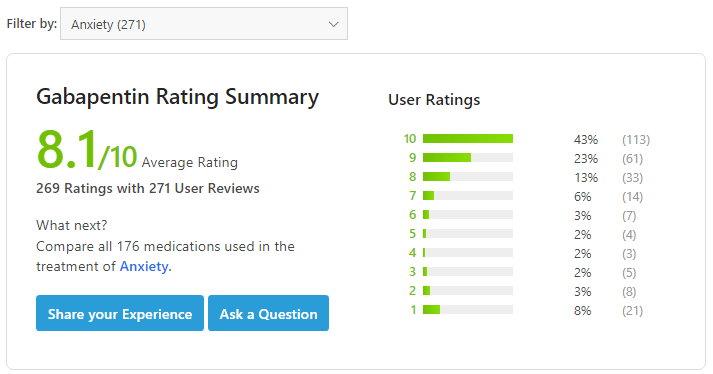Anxiety disorders are different, though. They can cause such distress that it interferes with your ability to lead a normal life.
This type of disorder is a serious mental illness. For people who have one, worry and fear are constant and overwhelming, and can be disabling. But with treatment, many people can manage those feelings and get back to a fulfilling life.

How Are Anxiety Disorders Treated?
Fortunately, much progress has been made in the last two decades in the treatment of people with mental illnesses, including anxiety disorders. Although the exact treatment approach depends on the type of disorder, one or a combination of the following therapies may be used for most anxiety disorders:
- Medication : Drugs used to reduce the symptoms of anxiety disorders include many antidepressants, certain anticonvulsant medicines and low-dose antipsychotics, and other anxiety-reducing drugs.
- Psychotherapy : Psychotherapy (a type of counseling) addresses the emotional response to mental illness. It is a process in which trained mental health professionals help people by talking through strategies for understanding and dealing with their disorder.
- Cognitive-behavioral therapy: This is a particular type of psychotherapy in which the person learns to recognize and change thought patterns and behaviors that lead to troublesome feelings.
- Dietary and lifestyle changes
- Relaxation therapy
How can I manage anxiety?
- Go to counseling as directed. Cognitive behavioral therapy can help you understand and change how you react to events that trigger your symptoms.
- Find ways to manage your symptoms. Activities such as exercise, meditation, or listening to music can help you relax.
- Practice deep breathing. Breathing can change how your body reacts to stress. Focus on taking slow, deep breaths several times a day, or during an anxiety attack. Breathe in through your nose and out through your mouth.
- Do not smoke. Nicotine can increase your anxiety. Do not use e-cigarettes or smokeless tobacco in place of cigarettes or to help you quit. They still contain nicotine. Ask your healthcare provider for information if you currently smoke and need help quitting.
- Do not have caffeine. Caffeine can make your symptoms worse. Do not have foods or drinks that are meant to increase your energy level.
- Limit or do not drink alcohol. Ask your healthcare provider if alcohol is safe for you. You may not be able to drink alcohol if you take certain anxiety or depression medicines. Limit alcohol to 1 drink per day if you are a woman. Limit alcohol to 2 drinks per day if you are a man. A drink of alcohol is 12 ounces of beer, 5 ounces of wine, or 1½ ounces of liquor.
On December 30, 1993, Gabapentin got final approval, which meant that it could be marketed in the United States. It is only marketed as an anticonvulsant. However, it has also been used for restless leg syndrome, pain issues, hot flashes, tremors, anxiety and a wide variety of psychiatric disorders.

more than 81% anxiety said Gabapentin is a good medicine for Anxiety. Tousant agrees Gabapentin is the only thing that has help with my anxiety, I tried others medications but it don’t work. I’m just taking it as needed for my anxiety and help me sleep. You can’t just stop it like that. You have to weaned yourself off it. My anxiety got worse when I lost my mother in 2014. I wish everyone the best. You do what works for you. Everybody is different.
I’ve suffered from bouts of severe anxiety since I was 5 years old. I’m 44 now. The Dr put me on Xanax, but that never seemed to do much for me except finally let me sleep for a few hours if I took more than my prescribed dosage. I also have degenerative disc disease in my lower back & was put on Gaba for nerve pain about a year ago. I couldn’t believe the effect it had on the anxiety. It’s like it snips some internal wire a)& cuts the anxiety off. It’s been a life saver for me, literally. HOWEVER, I say this with a warning. Obviously, not everyone gets this effect from Gaba. And, when I tried stopping cold turkey once, the anxiety came back worse than ever – like super bad. So, it’s a long term commitment, be aware.
Call 911 if:
- You have chest pain, tightness, or heaviness that may spread to your shoulders, arms, jaw, neck, or back.
- You feel like hurting yourself or someone else.